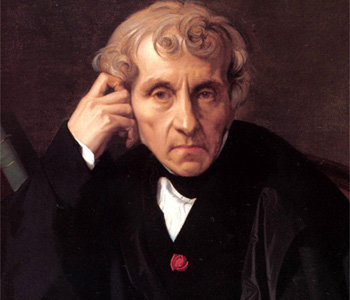Cherubini, composer of French Revolution who influenced Beethoven
Cherubini, composer of French Revolution who influenced Beethoven
Posted July. 14, 2015 07:29,

On July 14, 1789, an armed mob stormed the Bastille prison. It was the opening of the French Revolution. An opera theater for all classes is now standing on the ground where the prion existed. The French Revolution changed cultural tapestry across the European continent, as much as it did the political landscape. Beethoven, the patron saint of music, is one of the giants influenced by the revolution.
Some might ask, How come the French Revolution influenced Beethoven, a German who lived in Austria? Beethoven, who was born in Bonn close to France, sent out his sentimental support to the revolution that occurred in the neighboring country. It is widely known that Beethoven wrote the Symphony No.3 dedicated to Napoleon, who was leading the republic, and tore the title page in half when he broke into a rage at the news that Napoleon declared himself Emperor. But then afterwards, Beethoven had supported the ideology of liberty, equality and fraternity that the French Revolution advocated.
Especially, Beethoven was greatly impressed by music of Luigi Cherubini, an Italian composer and a prominent musician in the French music during the revolution age, and regarded him as the greatest of all musicians of the same age. Fidelio, the only opera written by Beethoven, is also seen as the piece of music that carries on the so-called "rescue opera" led by Cherubini and Etienne-Nicolas Mehul (1763-1817). During the revolution period in France, people loved operas using rescue episodes where a patriot is rescued heroically after being imprisoned under false charges. Cherubini and Mehul wrote several operas of such kind.
A theory was developed in the 1990s that the dramatic fortissimo phrases of Beethovens Symphony No. 5, which is commonly called "Destiny symphony," was influenced by Hymne du Pantheon made by Cherubini. As France started a war across the entire Europe, Beethoven expressed abhorrence against the expansionism of the nation. But he also praised the view of the world based on freedom and equality that the nation advocated. One of the reasons why Beethovens music had been recognized as a masterpiece in the European society after middle of the 19th century was that the bourgeoisies whose political role was limited listened to the music of Beethoven and appeased their rebellious spirit against the conservative political system.
In this hot summer, it would be meaningful to listen to the requiem and other music written by Cherubini, who was the source of insight to Beethoven.
gustav@donga.com







